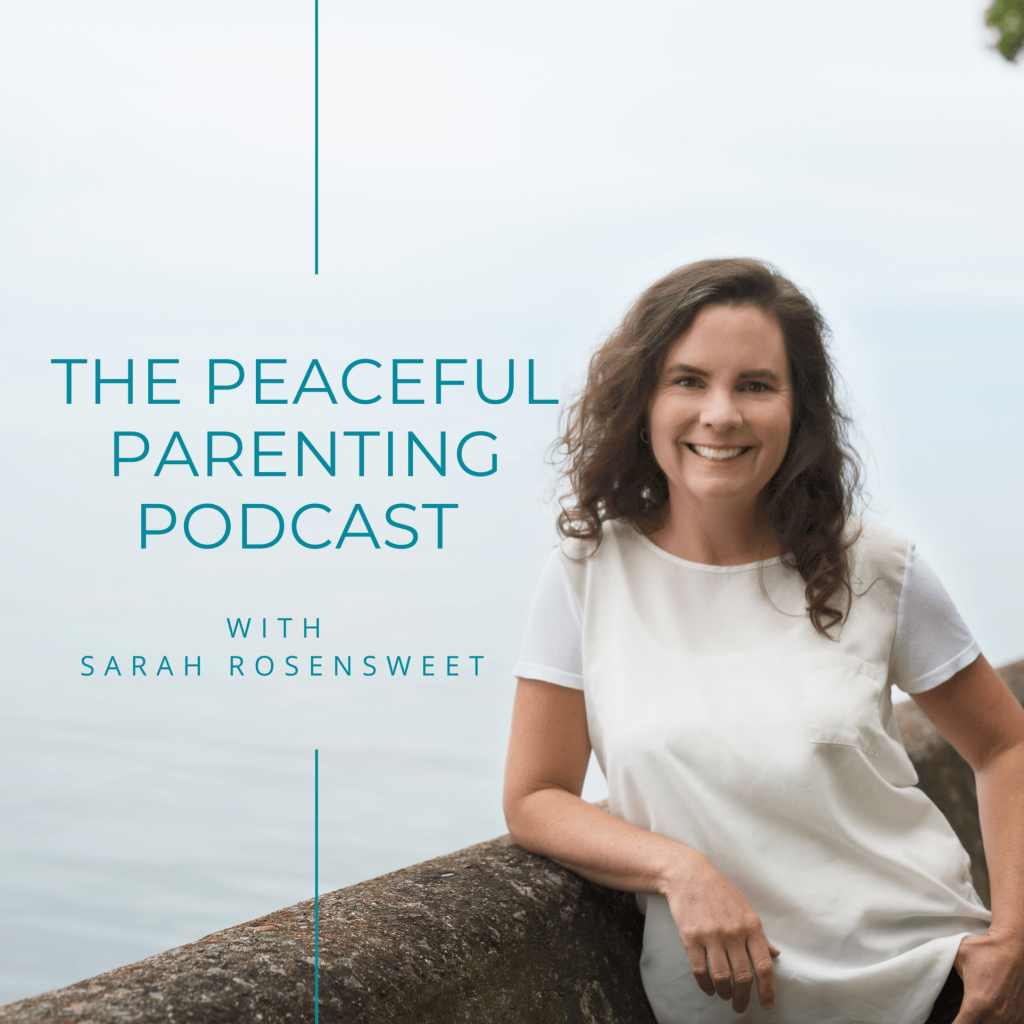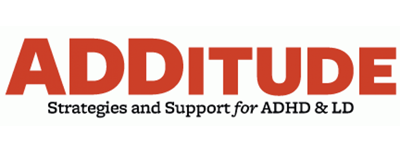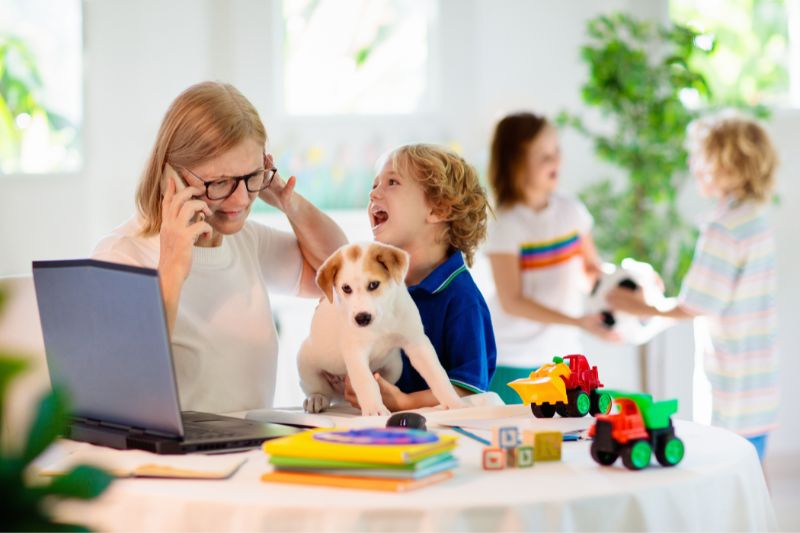 Maintaining a sense of humor when raising ADHD and non-ADHD kids alike is an essential tool for any parent. Children can expand your heart and push your buttons like no one else. But being able to laugh at what happens, at your reactions and sometimes at life itself helps ease the journey. Now we all know that everybody does things they’re proud of as a parent and things that they wish they hadn’t. Having compassion for yourself when you stumble enables you to giggle at your foibles without bombarding yourself with shame. Because self-blame or criticism of others often intensifies small incidents into full-blown explosions. Although, maintaining a sense of humor in challenging situations reduces the chances of meltdowns and helps you recover from setbacks more easily. Learn four new ways to manage parenting stress with humor and (re)connect with your child below.
Maintaining a sense of humor when raising ADHD and non-ADHD kids alike is an essential tool for any parent. Children can expand your heart and push your buttons like no one else. But being able to laugh at what happens, at your reactions and sometimes at life itself helps ease the journey. Now we all know that everybody does things they’re proud of as a parent and things that they wish they hadn’t. Having compassion for yourself when you stumble enables you to giggle at your foibles without bombarding yourself with shame. Because self-blame or criticism of others often intensifies small incidents into full-blown explosions. Although, maintaining a sense of humor in challenging situations reduces the chances of meltdowns and helps you recover from setbacks more easily. Learn four new ways to manage parenting stress with humor and (re)connect with your child below.
4 ways to manage stress and (re)connect with your child
1. Laugh at yourself when you ‘trip up’
As the parent, you need to set a good example for your kids by using a tone that brings humor, boundaries and self-expression to difficult situations. Raising ADHD kids comes with a unique set of challenges, but managing your emotions and expectations helps keep you calm while keeping life’s ups and downs in perspective. In addition, knowing how to laugh at yourself when you trip up really takes the edge off many challenging situations. Sometimes we get so caught up in the seriousness of parenting, we forget the important role humor plays in handling our own stress and creating a calm and pleasant atmosphere for the whole family.
2. Use levity to diffuse tension and gain self-control
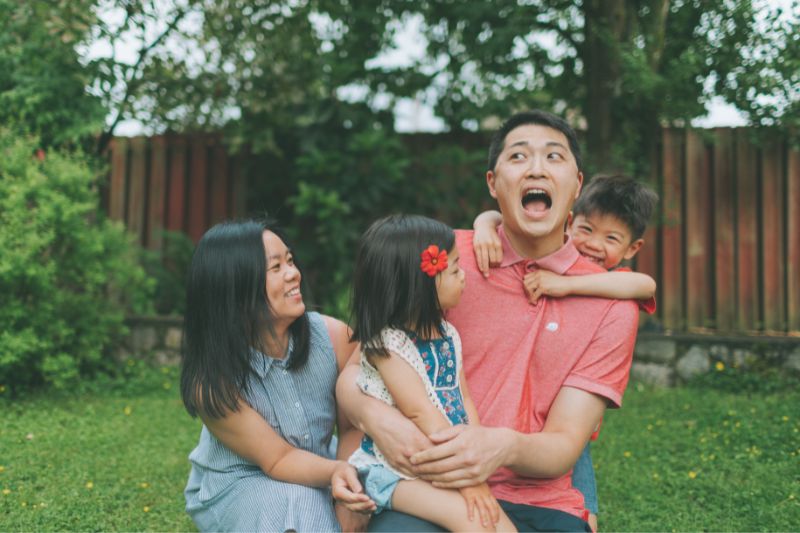 When you inject levity into challenging situations, you shift the conversation away from annoyance and aggravation. This requires some self-control and creativity but the rewards are plentiful. When you look at yourself and your reactions differently, you’ll take the first step toward diffusing tension. You’re not only modeling this for your ADHD child as an effective coping tool, you’ll feel better and they will too. For example, when kids speak to you in a disrespectful tone, you have a choice. You can angrily tell them “You’re not allowed to speak to me that way. Go to your room.” Or, you can say: “Fresh is for vegetables, not speaking to me like that.” The first option throws fuel on the fire; the second one, dampens the flames. If your teenage son gets into your car, plugs in his phone and listens to music that he knows you hate, you could tell him that he’s being selfish and entitled and unplug his phone. Or, you could learn some of the lyrics to his favorite songs and sing along. That will certainly change the dynamic in the car and likely make you both smile. By proactively doing this you’re able to manage your own reaction with humor and not responding negatively.
When you inject levity into challenging situations, you shift the conversation away from annoyance and aggravation. This requires some self-control and creativity but the rewards are plentiful. When you look at yourself and your reactions differently, you’ll take the first step toward diffusing tension. You’re not only modeling this for your ADHD child as an effective coping tool, you’ll feel better and they will too. For example, when kids speak to you in a disrespectful tone, you have a choice. You can angrily tell them “You’re not allowed to speak to me that way. Go to your room.” Or, you can say: “Fresh is for vegetables, not speaking to me like that.” The first option throws fuel on the fire; the second one, dampens the flames. If your teenage son gets into your car, plugs in his phone and listens to music that he knows you hate, you could tell him that he’s being selfish and entitled and unplug his phone. Or, you could learn some of the lyrics to his favorite songs and sing along. That will certainly change the dynamic in the car and likely make you both smile. By proactively doing this you’re able to manage your own reaction with humor and not responding negatively.
3. Use humor as a way to (re)connect with your child
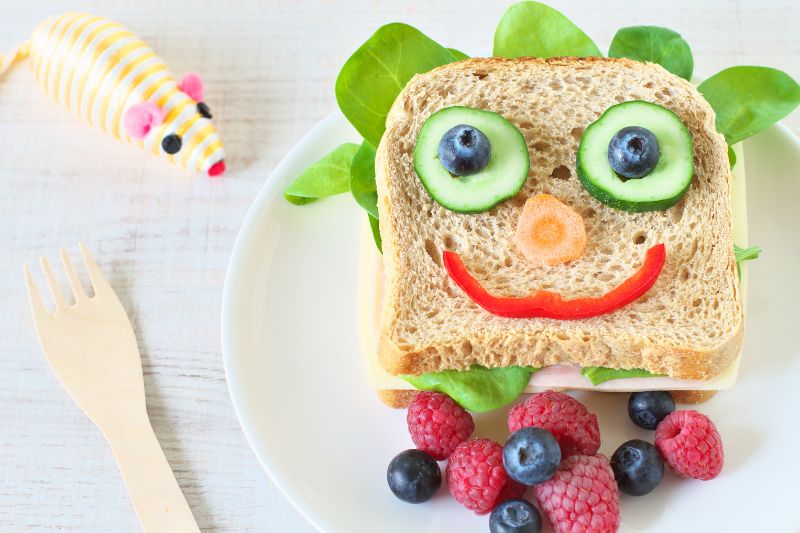 One of the toughest predicaments for any ADHD parent is the loss of connection with their child. Sometimes this is a natural extension of your teen’s growing independence. Other times bonds break as the result of divorce or other demands which decrease a parent’s presence in their child’s life. Whether you and your ADHD child are drifting apart or are just finding it difficult to bond in the current phase of your relationship, humor is a wonderful tool with which to reconnect. Humor can help you form a strong bonder with your child, diffuse tension, overcome problems and setbacks, put things into perspective, loosen you up, and energize your thinking. Using laughter will help you resolve disagreements and strengthen your relationships.
One of the toughest predicaments for any ADHD parent is the loss of connection with their child. Sometimes this is a natural extension of your teen’s growing independence. Other times bonds break as the result of divorce or other demands which decrease a parent’s presence in their child’s life. Whether you and your ADHD child are drifting apart or are just finding it difficult to bond in the current phase of your relationship, humor is a wonderful tool with which to reconnect. Humor can help you form a strong bonder with your child, diffuse tension, overcome problems and setbacks, put things into perspective, loosen you up, and energize your thinking. Using laughter will help you resolve disagreements and strengthen your relationships.
4. Lighten the mood
 If you were to recall a happy memory from your own life, chances are it involved shared laughter about a funny incident or inside joke. As with your other relationships, look for opportunities to infuse humor into your relationship with your ADHD child. Watch funny YouTube videos, tell corny Dad jokes or make up goofy song lyrics – it all lightens the mood and gets you to share good times together. Get your creative juices flowing and seek out any activity in which you and your child share an interest. If you can make it a regular occurrence, all the better. If your child doesn’t seem interested at first, shrug it off and enjoy the activity on your own. When your child sees you roaring with laughter watching TikTok videos or practicing new dance moves, they’ll likely get curious enough to see what you’re up to. Keep it going and chances are your connection with your child will grow with time. Humor is an integral component of emotional well-being and social engagement. It lifts our spirits and offers a point of connection with others. In addition, humor eases tense situations and relieves stress of all kinds. Of course there are difficult problems and situations where humor is not an appropriate response. But for day-to-day ADHD parenting challenges, maintaining a sense of humor can go a long way and bring joy, calm and connection.
If you were to recall a happy memory from your own life, chances are it involved shared laughter about a funny incident or inside joke. As with your other relationships, look for opportunities to infuse humor into your relationship with your ADHD child. Watch funny YouTube videos, tell corny Dad jokes or make up goofy song lyrics – it all lightens the mood and gets you to share good times together. Get your creative juices flowing and seek out any activity in which you and your child share an interest. If you can make it a regular occurrence, all the better. If your child doesn’t seem interested at first, shrug it off and enjoy the activity on your own. When your child sees you roaring with laughter watching TikTok videos or practicing new dance moves, they’ll likely get curious enough to see what you’re up to. Keep it going and chances are your connection with your child will grow with time. Humor is an integral component of emotional well-being and social engagement. It lifts our spirits and offers a point of connection with others. In addition, humor eases tense situations and relieves stress of all kinds. Of course there are difficult problems and situations where humor is not an appropriate response. But for day-to-day ADHD parenting challenges, maintaining a sense of humor can go a long way and bring joy, calm and connection. 
Follow me on social media: YouTube, Facebook, Twitter, Instagram.
Coaching/Counseling | Presentation/Workshops | Podcast Interviews | Subscribe to our newsletter
Read more blog posts:
- Parenting in ADHD Families: A 5-Step Plan for Improving Cooperation and Communication
- Managing Meltdowns & ADHD with the 4 R’s
- ADHD, Emotional Regulation and Managing Family Conflict
Learn More with Dr. Saline’s Webinars:
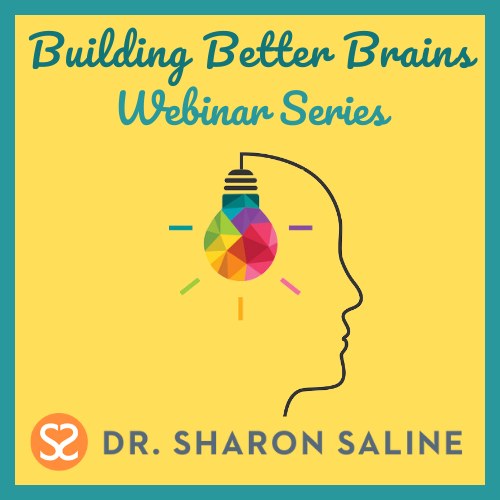
- Defeating the Worry Monster: Tips and tools for helping elementary school children with ADHD and anxiety
- Beyond High School Graduation: How to help neurodivergent teens prepare for their next chapter
- Contact Dr. Saline to be a speaker at your event! Click here
Attendee Feedback | Upcoming Webinars | Dr. Saline’s YouTube
Watch on Dr. Saline’s YouTube Channel:
- Meet Dr. Sharon Saline, ADHD and Neurodiversity Family Therapist
- ADHD Communication Tips
- Tips for Helping ADHD Kids and Families Share Feelings
Sign-up today and receive 10% off!



 Use the
Use the  Kids with ADHD like to know what’s coming down the pike because it helps them prepare for transitions and adjust their expectations.
Kids with ADHD like to know what’s coming down the pike because it helps them prepare for transitions and adjust their expectations. 

